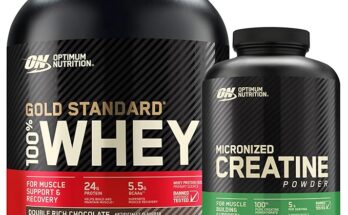Eating well is not just a means of fulfilling hunger but also intricately related to the nourishment of the body, mind, and spirit. It has effects on a person’s current levels of energy, clarity of mind, emotional well-being, and long-term health. Even though the heady pitch and uncomplicated way nutrition and healthy eating appear to be able to run you off in certain cases, the implementation of first principles and judicious choices could really appoint anyone who is able to assume command over his own diet. In this article, we get into the essential components of eating well, nutrients involved, and practical tips on starting and sticking with a healthy lifestyle.
Understanding the Basics of Eating Well
What Exactly Is Eating Well?
Eating well is when you eat all sorts of foods to ensure that your body has enough nutrients to stay healthy, feel good, and have energy. It does not mean that you limit yourself to certain foods or become unrealistically thin or deprive yourself of foods you like. But rather, it means feeling revitalized, energized, healthy, and emotionally balanced. Eating well means finding a perfect balance between proteins, fats, carbohydrates, vitamins, and minerals in your diet.
Eating well means not a simple calorie count nor an elimination of a certain group of foods but rather whole foods and an understanding of the excess that your body needs. Not merely merely a calorie count or elimination of certain food groups; but diversity, moderation, and being in tune with one’s body.
Balanced Diet
A balanced diet provides small and large nutrients to the body. The former includes the macronutrients of carbohydrates, proteins, and fats, while the latter encompasses vitamins and minerals. Eating a variety of foods from different food groups ensures that your body receives a wide breadth of nourishing elements that work together to maintain its integrity.
A balanced diet incorporates various components such as fresh fruits, vegetables, whole grains, low-fat proteins, and healthy fats. Processed foods must be nonexistent and nutrient-rich foods should be present because this will result in good health. Balancing does not mean relying on just one component too much.
Nutrient Timing: When to Eat
The timing of food intake can greatly affect energy balance throughout the day. Some studies suggest that eating smaller and more frequent meals throughout the day is effective in sustaining energy levels and preventing overeating. Others suggest planned meal times, such as taking three main meals and some light snacks in between. The key is to see what works best with your body and life.
Nutrient timing helps in enhancing metabolism and sustaining energy levels in the body. Breakfast is often considered to be the most essential meal since it is to kickstart metabolism after a night in fasting. Though for nutrient timing, meal timings do vary for individuals. Finding a timescale close to personal needs and preferences is part of eating well.
Macronutrients-The Term to Trope
The Functions of Carbohydrates
In the human body, carbohydrates are the primary source of energy. They are a wide and diverging group of foods: one may find them in fruits, vegetables, grains, and dairy. They come in two varieties-simple or complex. The simple carbohydrates that are mainly composed of sugar may raise blood sugar levels very fast, but then subsequently fall as quickly as they rise. In contrast, the complex carbohydrates commonly contained in whole grains and vegetables release energy more slowly and gradually.
Choosing the right type of carbohydrate is the most important component of good nutrition. Whole grains such as brown rice, quinoa, and oats will help supply adequate fiber and nutrients. The spaghetti logic follows in that the incorporation of complex carbohydrates will buoy blood sugar, along with involving the odds of fighting risk ailments.
Protein-the Need for Growth and Repair
Proteins are indispensable for body tissue growth, repair, and maintenance. Proteins are made up of amino acids; however, some of them can be synthesized in the body, while others must be taken in through the dietplex. Their sources vary to include meat, poultry, fish, dairy products, beans, and other plant-based sources such as tofu and tempeh.
Protein is essential for muscle health, immunity, and metabolism. This kind of nutrient is also vital for promoting satiation and giving a feeling of fullness over a given amount of time. This places variety in sources at the highest level of importance: having a blend of protein sources helps ensure getting the essential amino acids, the very pillars of healthy eating.
Fats: The Good, Bad, and Essential
Fats are often deprived of their good name, even though they are an integral part of healthy nutrition. Fats supply a slow-burning energy source and aid in the absorption of fat-soluble vitamins A, D, E, and K, and function in brain health and hormone production. These are further divided into saturated, unsaturated, and trans fats. While saturated or trans fats-most abundantly found in processed foods-must be minimized, unsaturated fat, such as that in olive oil, avocados, and nuts, is good for health.
Including healthy fats in your diet supports brain performance, heart health, and general well-being. By using oils mainly derived from unsaturated fats, along with limiting fried and processed foods, you direct your intake of fat towards wholesome living.
Micronutrients: The Vital Elements of Eating Right
The Function of Vitamins
Vitamins are particular kinds of organic compounds which are necessary for normal growth and nutrition. Only small quantities are required, and they have to be provided mainly through diet. Water-soluble vitamins include all the B vitamins and vitamin C, while vitamins A, D, E, and K are fat-soluble. Each vitamin serves some kind of purpose, from supporting the immune system to sustaining skin and vision health.
Adequate vitamin intake is most vital to eating well. You can keep intake sufficient by eating various fruits, vegetables, and fortified foods, all of which would help keep you well out of the vitamin deficiency trap.
Minerals are vital nutrients needed for the body to function properly-they fall into one of two categories: major or macrominerals (such as calcium, potassium, and magnesium), or minor or trace minerals (such as iron, zinc, and selenium). Minerals are required for the maintenance of several processes in the human body, including bone health, muscle contraction, and nerve signaling.
Minerals are the foundation of a properly functioning body. A healthy diet should include foods rich in minerals, such as leafy greens, nuts, seeds, and whole grains, which nourish the body to run effective functions.
The Role of Hydration in Eating Well
Why Water must Be Taken
Water-a nutrient that must be secure in a person-is-the most important nutrient; at 60 percent, water water composes most of the human body. Water is, in fact, a key component in the growth of healthy cells, hormones, and digestion. It maintains a stellar performance in mood elevation, provides necessary warmth to the body, transports important nutrients, and eliminates waste. Cognitive performance, mood, and energy levels may fall with even mild dehydration.
There is a list of the other foods and beverages that also contribute to hydration. Water makes up 60 percent of the human body and is, therefore, the most significant nutrient; every cell, tissue, and organ needs it for proper functioning. It upholds stellar performance in maintaining body temperature, transporting nutrients, and eliminating waste. Even with mild dehydration, many cognitive functions, mood, and energy levels with higher rates of fitness may become impaired.
Hydration Beyond Water
While water should be the primary source of hydration, other fluids can contribute to your body’s water intake. These include herbal teas, milk, and fresh juices; just keep in mind the other sugary beverages that should be avoided because they add empty calories and poor health at times.
The addition of hydrating foods like cucumber, watermelon, and orange to your diet also supports hydration while also complementing the principles of eating well.
Tips for Eating Well
Meal Planning and Recipe Preparation.
Meal planning and preparation will undoubtedly promise you a well-balanced diet. With such planning, one can invariably make healthier choices, save time, and reduce stress around what to eat. When you prepare food at home, you can control the ingredients that go into the preparation and the portion sizes.
Meal planning allows a person to plan a nutritionally balanced diet, which is already half of the success. By meal prepping, one can resist impulsive eating and unhealthy takeout and find it really simple to maintain his or her health goals.
Mindful Eating: Listening to Your Body
Mindful eating means being attuned to how hungry or how full you are, eating with intention. It means really savoring each mouthful, eating slowly, and being aware of how one feels emotionally and physically while eating. This practice is personal and can help steer you clear of overeating.
Mindful eating encourages one to develop a healthy relationship with food. It helps you engage with what is happening in your body rather than turning to routine out of habit or boredom, thus promoting good health and meal satisfaction.
Control Portion Sizes and Moderation
Portion control is AS important as eating correctly. Even healthy foods can result in weight gain if they are taken in large quantities. In turn, it’s good to learn and recognize the proper portion sizes, as this would let you enjoy several foodstuffs, without actually going overboard.
To exercise portion control means taking note of the sizes serving your body is calling for. It does not mean depriving yourself, but considering moderation in enjoyment of food so as to set a stage for nutritious dining.
Special diets are balanced diets.
Vegetarians and vegans claim to adopt these programs for various reasons, basically, health-related or environments. A properly-designed vegetarian or a vegan diet can provide all the necessary nutrients a human body deserves. But some nutrients, such as protein, iron, calcium, and Vitamin B12, may not be easily obtained from plant sources.
Eating well means careful selection of a variety of plant-based foods by people following vegetarian or vegan lifestyles in order to ensure that all nutritional needs are met. For nutrients such as Vitamin B12 and iron, fortified foods or dietary supplements are necessary.
Gluten-free and other specialized diets are used in celiac disease or gluten sensitivity. Other specialized diets, such as low-carb, ketogenic, or Mediterranean are used for different reasons related to health. Whatever specialized diet we talk about must provide sufficient nutrients to be successful.
Eating well on a gluten-free or specialized diet takes planning and label reading to prevent deficiencies. Regardless of dietary restrictions, it’s important to take balanced quantities of macronutrients and micronutrients to maintain overall health.




